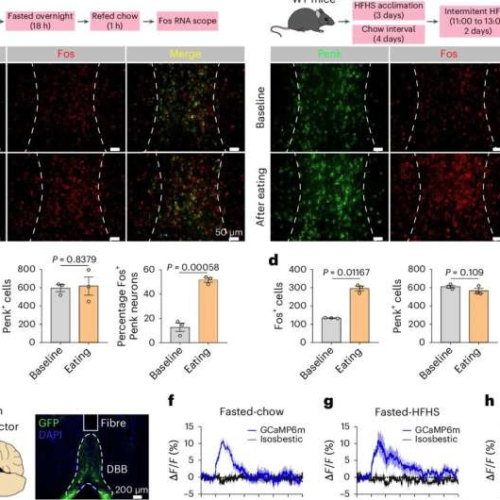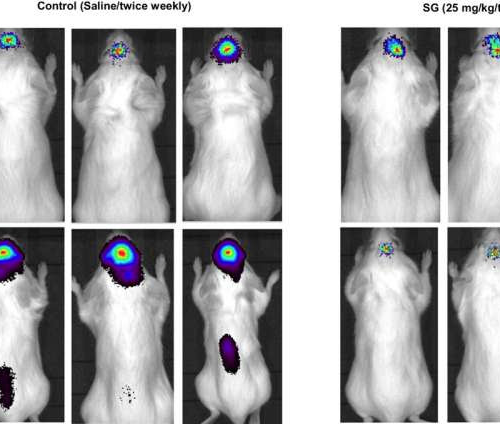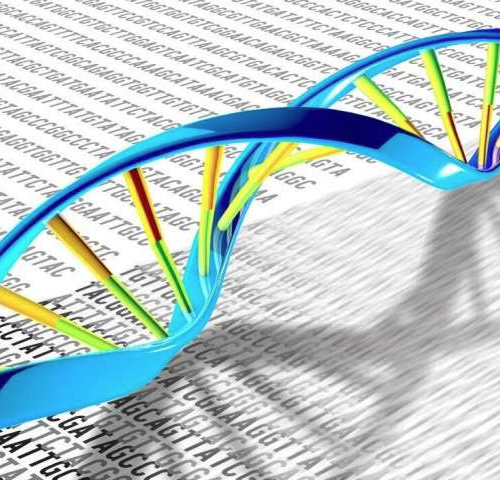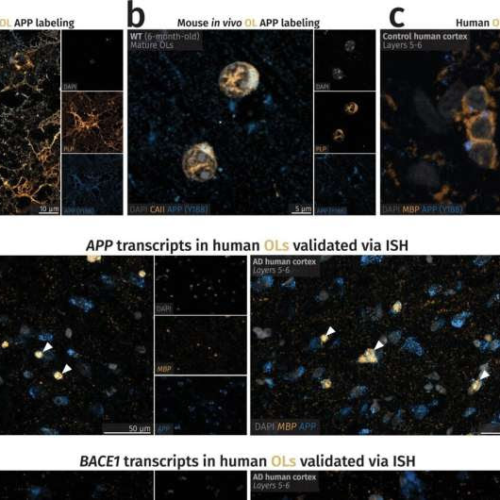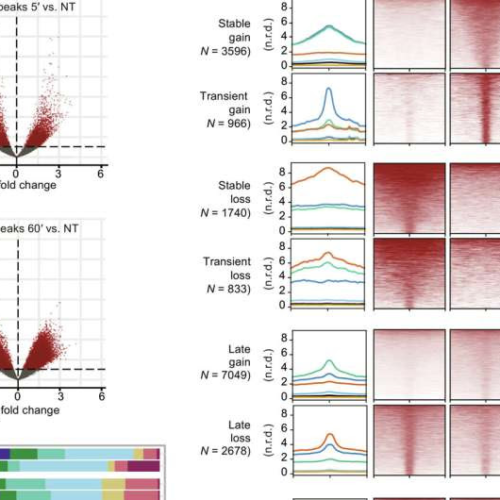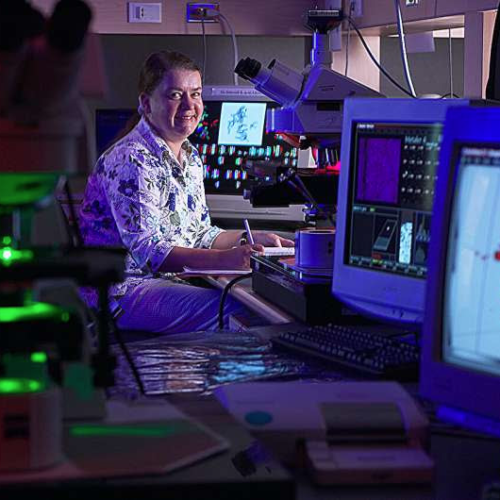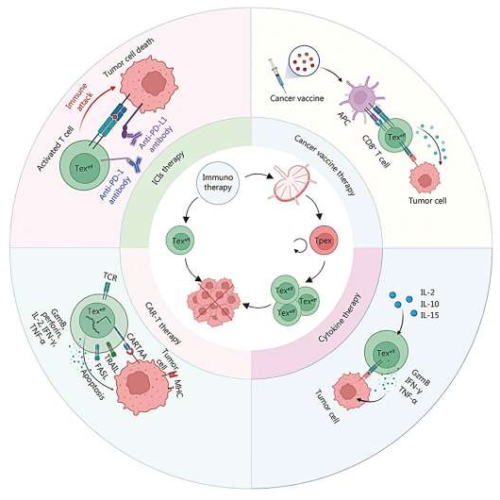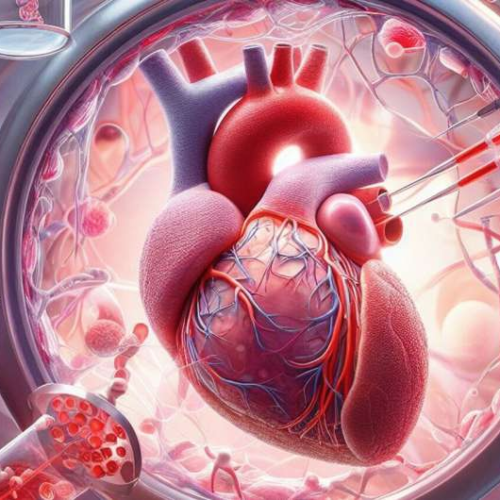August 8, 2024 by Taylor Barnes, Baylor College of Medicine DBBPenk neurons are activated by food. Credit: Nature Metabolism (2024). DOI: 10.1038/s42255-024-01099-4People eat either because they are hungry or for pleasure, even in the absence of hunger. While hunger-driven eating is fundamental for survival, pleasure-driven feeding may accelerate the onset of obesity and associated metabolic...
Drug shows promise for treating brain tumors resulting from breast cancer, trial reports
August 8, 2024 by Steven Lee, University of Texas Health Science Center at San Antonio Sacituzumab govitecan (SG) inhibits tumor growth in a xenograft model of intracranial breast cancer. Representative bioluminescent images of control and sacituzumab govitecan treated (25 mg/kg/twice weekly) mice at the start of treatment (top panels) and 2 weeks after treatment (bottom panels)....
Epigenetic change to DNA associated with cancer risk in ‘multi-omics’ study
August 9, 2024 by Leigh MacMillan, Vanderbilt University DNA, which has a double-helix structure, can have many genetic mutations and variations. Credit: NIHA research team co-led by investigators at Vanderbilt University Medical Center and the University of Virginia has identified associations between DNA methylation and cancer risk. DNA methylation is an epigenetic change—the addition of...
Alzheimer’s disease: It’s not only neurons—glial cells also produce harmful proteins
August 9, 2024 by Carmen Rotte, Max Planck Society Oligodendrocytes exhibit protein expression of amyloid precursor protein (APP) and an abundance of APP and BACE1 transcripts. Credit: Nature Neuroscience (2024). DOI: 10.1038/s41593-024-01730-3Memory loss, confusion, speech problems—Alzheimer’s disease is the most common cause of dementia, affecting about 35 million people worldwide, and the number is growing....
Newly discovered mechanism halts tumor cell replication
August 8, 2024 by University of Bologna Top1ccs induce dynamic changes of hybrid levels at specific genomic sites in HCT116 cells. Credit: Science Advances (2024). DOI: 10.1126/sciadv.adm8196A research group at the University of Bologna has identified, for the first time, the specific location and genomic context where DNA breaks occur due to the inhibition of...
Medical breakthrough provides hope for early risk stratification of a deadly blood cancer
August 9, 2024 by Davide Montebruno, University of Manitoba Dr. Sabine Mai. Credit: University of ManitobaDr. Sabine Mai, Canada Research Chair in Genomic Instability and Nuclear Architecture of Cancer with the Rady Faculty of Health Sciences recently co-authored an article published in the American Journal of Hematology. The groundbreaking study shows early risk stratification of...
Tpex cells: A game-changer in targeted tumor immunotherapy
August 8, 2024 by China Anti-Cancer Association the game-changer in targeted tumor immunotherapyTumor immunotherapy targeting Tpex. Credit: Cancer Biology & Medicine Progenitor exhausted CD8+ T (Tpex) cells have emerged as a pivotal component in tumor immunotherapy due to their unique ability to self-renew and rapidly proliferate. These cells have shown promise in expanding and differentiating...
New study shows a single experimental shot reduces HIV levels 1,000-fold
August 8, 2024 by Franny White, Oregon Health & Science University A study in nonhuman primates found a dramatic decrease in levels of the monkey form of HIV after one shot of Therapeutic Interfering Particles, or TIPs. The study’s results suggest that one TIP shot could prevent a person living with HIV from passing the...
HbA1c stability tied to lower risk for Alzheimer’s disease and related dementias
by Lori Solomon Increased glycated hemoglobin (HbA1c) stability within patient-specific target ranges is associated with a lower risk for Alzheimer’s disease and related dementias (ADRD), according to a study published online Aug. 2 in JAMA Network Open. Patricia C. Underwood, Ph.D., from the William F. Connell School of Nursing at Boston College, and colleagues examined...
Potential new approach to enhancing stem-cell transplants
August 8, 2024 by Albert Einstein College of Medicine Credit: Pixabay/CC0 Public Domain A discovery by a three-member Albert Einstein College of Medicine research team may boost the effectiveness of stem-cell transplants, commonly used for patients with cancer, blood disorders, or autoimmune diseases caused by defective stem cells, which produce all the body’s different blood...

